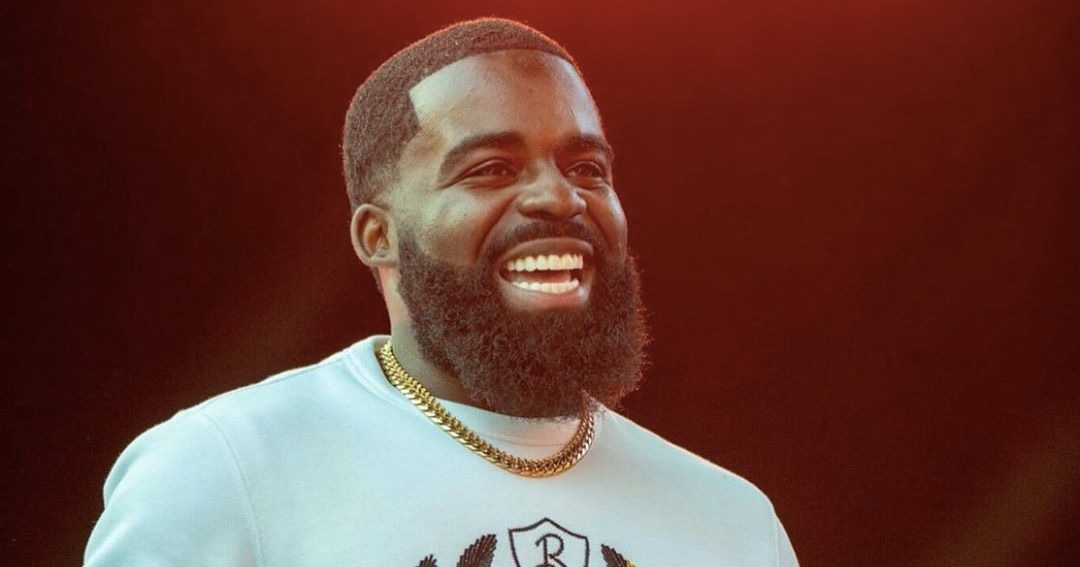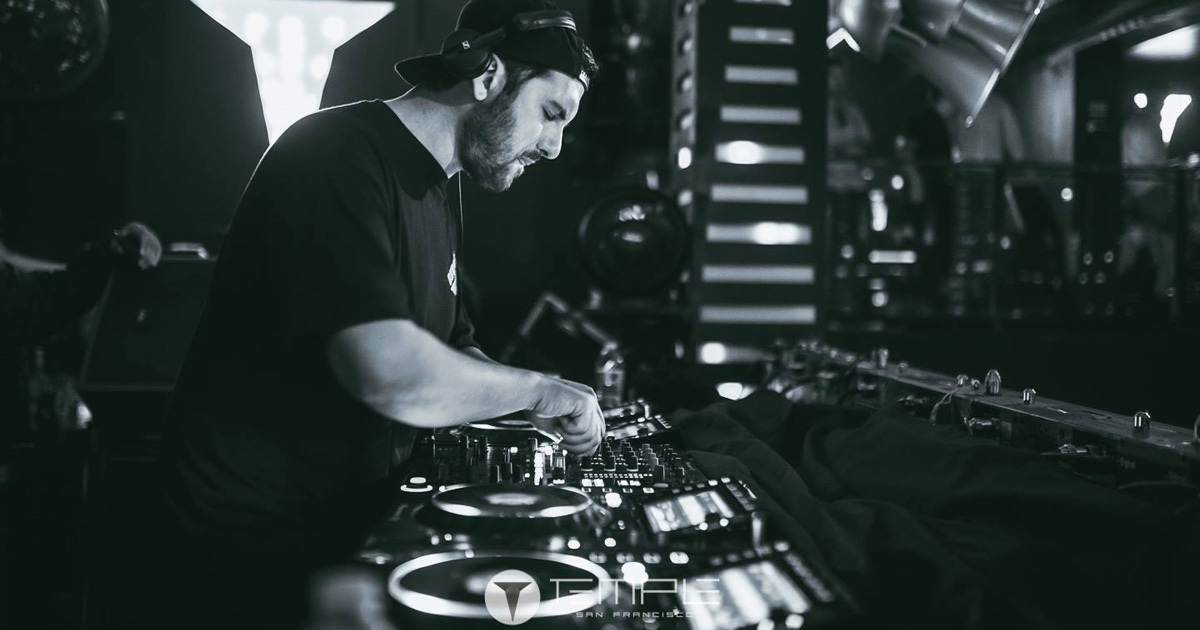Shirley Ju
Afro B Talks Starting Out as a DJ, How ‘Joanna’ Became a Hit, and AfroWave Movement
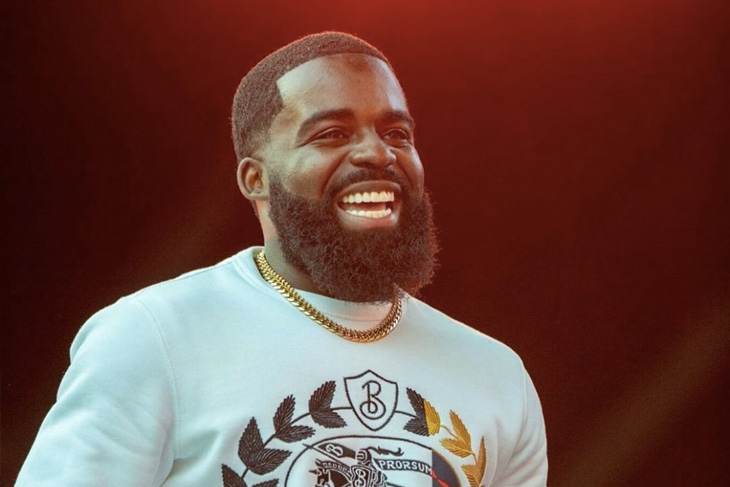
Afro B (Source: Instagram)
Afro B arrives in 2019 with arguably the biggest Afrobeats song to hit the US, and worldwide. “Drogba (Joanna)” is not only catchy, but introduces audiences to the diverse culture of African music while bringing the familiar sounds of R&B and hip-hop.
Currently, the track hails over 100 million streams across all platforms and is No. 13 on Billboard’s R&B/Hip-Hop Airplay chart. It has also seen remixes from African-born stars French Montana and WizKid.
What people may not know is that Afro B started out as a DJ and event producer. At age 16, real name Ross Bayeto began spinning at a club called NW10 where he built his first fanbase. During a time when dancehall and hip-hop were prominent, the UK-bred DJ stood out amongst his peers, pushing the genre of AfroWave that’s now accepted worldwide.
DJcity caught up with a good-spirited Afro B in his few days in Los Angeles to chat about his come up as a DJ, the AfroWave movement, and the success of “Drogba (Joanna).”
You refer to your style as “AfroWave.” Describe what that is for those who aren’t familiar.
AfroWave is the movement promoting the African culture to people who are unfamiliar, giving a good view on the continent itself. It’s the sound as well, a combination of different elements into one. You might hear some influences from dancehall, influences from old school hip-hop, new-school hip-hop, and a bit of reggaeton. It depends on the vibe on the day you make it in the studio.
How does your background as a DJ influence you as an artist?
I look at things like what would get people moving? What would work in the club and what wouldn’t? The way I tap music, I always think of whether it’d work for a club or not. It helped me work out the structure as well. People like catchy music and vibes, that’s always the angle I hit.
How did you get into DJing?
I was with a group of friends, two of them already knew how to DJ. Kenny Allstar and Rick, we had a group called All-Star Entertainment. They literally taught me how to DJ. I started off using VirtualDJ on my laptop. We started to release mixes on YouTube, and I was getting good numbers. Not many people were using social media at the time. We were throwing under 16 or 18 events, that’s how we were building our fan bases.
A lot of DJs are content with staying DJs. Why did you expand?
You know what? I started off playing keys in church. I also grew up listening to all types of music, not just Afrobeats. From old school rock and roll to Amy Winehouse, Michael Jackson, 50 Cent, Ja Rule, Akon, Sean Paul, Vybz Kartel, Mavado, Popcaan, just a different range of music.
When you were DJing, did you think you’d be where you are now?
I always speak things into existence, so I knew I would get to this point one way or the other. I always envisioned things happening. I did see myself coming; I just didn’t know when it was gonna happen. This “Joanna” [track], that’s the ticket. [laughs]
It wasn’t an instant hit. How’d it grow into what it is now?
Well, I attached a dance challenge to it. I was very strategic with the way I was pushing the track. Social media played a big part in the song spreading into different territories. The dance challenge called #DrogbaChallenge allowed different people all over the world to dance to the record, who weren’t necessarily African as well. Mainly through Instragam, Twitter, and Facebook. Those three platforms helped it spread. Then it started to reach the DJs; the DJs started to play it in the clubs. It was more of an organic build rather than paying for crazy promotion and getting it into people’s faces. It’s been a gradual build.
Was the dance challenge through an app, like TikTok?
Nah, I was pre-recording people dancing to the song in dance classes. Literally the day after the release, I was releasing all the pre-recorded videos on my Instagram. There was one in particular that went viral, like crazy viral.
What was it about that one?
The skill. She did it with style man. That was the one that took off. Then it just had a knock-on effect; all these other videos were going viral.
Wow. Being a DJ yourself, what was your strategy in getting it to DJs?
I literally sent it out and would just connect with them. If someone would add me on Instagram playing the song, I’d thank them for playing the record, connect with them. [I’d] Be like “anything you need, let me know. If you want [a] drop, I can literally record it on WhatsApp. If you need a dubplate, I can record that for you when I’m in the studio.” I understand their value because I am a DJ. I understand the importance DJs are to the music because they really play a big part in spreading the music to the masses. They’re the ones telling the audience, “yeah, this is a cool song” or “this isn’t a cool song.”
Do you feel pressure to have a successful follow up to “Joanna”?
No man! Right now the way I see it is, I’m a supplier. Because the sound is new and people don’t really know many artists or songs in this scene, they’re gonna just look at people who have the song poppin’ right now. “What else do they have out?” Or “what are they bringing out?” So I’ve got an album ready to go in the next two months. I’ve got my next single coming out next month, so I just have to keep providing. Whatever people gravitate towards, that’s what it’s going to be, man. 100%.
“Joanna” might be one of the most popular African music singles ever in the US, but the genre itself has yet to crossover into the mainstream. What could change that?
We just need to keep dropping more records I feel. It’s still early. “Joanna” could be the door-opener to more music breaking through the mainstream. We just need to keep supplying, get more co-signs from the bigger artists, like Beyonce. She just did the Lion King album and featured some African artists on there [Burna Boy]. That’s gonna help it because obviously, she influences a lot of people. If people are watching her do that, they say “okay, so it’s cool to do that.”
What about you? What do you think you can do?
Me? Just keep releasing! Talk to people like you, have interviews with people who are introducing the sound to people who are unfamiliar with it. Not just promoting it [to] people who know about it already. That’s what I aim to do.
You know our team member, Poizon Ivy the DJ? How did you guys connect?
Yeah, that’s my friend! She’s been supporting from early. She picked up on the record early last year. She’s someone that’s been pushing African music from the jump. She’s a cool girl, man. Dope DJ.
Do you guys joke about how the record blew up?
Yeah man, because obviously it’s been out for a year and a half now. She’s been like “oh people are late, but it’s cool man.” She gives me updates on how it’s performing in [Dallas]. She was the first one to play it at an NBA game. I can’t remember what game it was, but she sent me the footage of her playing it. That’s how I connected with her. She showed me the footage of her playing the record at an NBA game. I followed her instantly, thanking her.
Do you still DJ?
Yes. Up to now, I still have a weekly radio Afrobeats radio show on mainstream radio called Capital XTRA. My show’s called Afrobeats. I’m still pushing the genre, other people’s music that’s not my music. That whole Afrowave movement, just pushing the culture to the masses.
Will you be doing DJ sets on top of your performances?
Well DJ sets, I haven’t done one in a while. People been calling me to perform rather than DJ, but later on down the line, once I’ve done my thing with the music, I’ll say “do you want to book me to DJ or do you want to book me to perform?” Give them the choice.
Is there anything else you want to let us know?
[My] next single [is] out next month [and my] album [is] on the way, Afrowave 3. More Afrobeats vibes. [I’m] working on getting some American features on there. I’ve got the French Montana remix out now. I’ve got a Latin remix on the way with Ozuna. Let’s keep breaking down those doors; that’s what I aim to do.
Follow Afro B on Facebook, Instagram, Twitter, and YouTube
Edited by Anthony Polis
Related Post: GuiltyBeatz Talks Rise of African Music
Borgore Talks DJing and Producing
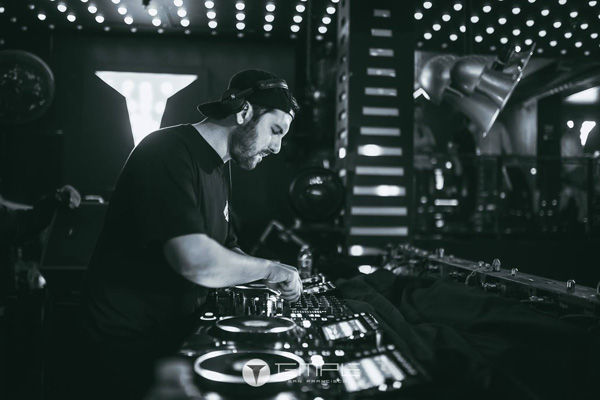
Borgore at Temple in San Francisco on Aug. 3, 2018. (Source: Facebook)
Borgore is a household name in the dance music scene. Whether he’s producing, DJing, singing, rapping, or shutting down festivals across the world, real name Yosef Asaf Borger stands as one of the most well-respected dubstep artists.
Being the founder of Buygore Records and doing gigs all across the globe, he still manages to find time to test the waters and experiment with new sounds. Adventures in Time is his first jazz album, a pleasant surprise from his usual hard-hitting, head-banging, moshpit-friendly tunes.
On day one of HARD Summer 2018, Borgore’s back-to-back set with Getter proved to be one of the most highly-anticipated acts on the bill. DJcity caught up with Borgore in his trailer after his performance, squeezing in the 10-minute time slot given by his management to accommodate his busy schedule. Before we begin the interview, he pours himself some Jameson, blaming it on the “long weekend” ahead.
How does it feel to be back at HARD Summer without Destructo?
I don’t think it affects me personally. He’s moved on to other things; he has big ventures. I don’t know what people know and don’t know, but HARD is something he built that was incredible. I’ve always really appreciated HARD. It was my first show where I was like “holy sh#t!” It was M.I.A., Die Antwoord, and me, a dubstep producer from a bedroom somewhere in Tel Aviv. I was just blown away. Destructo did amazing things, and the festival is still going.
How was your set?
Usually, I’m nervous, but HARD had me a little bit more nervous. There were so many different factors, including some serious competition on the other stages. The second thing was: I live in Los Angeles, so there’s a lot of friends and people I hang out with that come to see me. It becomes more personal. The third thing was: HARD was the first time Getter and I did a [back-to-back set], and it was on a big festival stage. We didn’t practice on a small festival stage. We went straight into headlining that stage. We wanted to practice and go over things, but we are both extremely busy. I was in Europe for two months before that show, so we couldn’t really hang out and work on it. Although we are really close friends, I wish we had more time to just chill. But all and all it was super fun.
You’ve had features with everyone from Miley Cyrus to G-Eazy and Waka Flocka Flame. What do you look for in a feature?
It’s like dogs. [laughs] I’m not very picky. I just love working with other people. Every singer is like a new instrument. They sound different. They bring something else to the table, so any collab for me is blessed. Whether it’s the biggest artist in the world or someone who just got his name, you can learn or do something with anyone. There’s a very small list of people that I wouldn’t work with, and I’m also not the type of person to throw shade. I’m not going to mention anyone, but in general, most people are more than welcome.
With dubstep going back into the underground, do you feel you have to change your sound?
It really depends where you’re playing. It depends on the venue, the crowd, and the country. You have to know the crowd. Before the set, I do my homework. If it’s a Las Vegas show, obviously I’ll play way more commercial. If it’s a Borgore show, then I’ll probably play the harder stuff.
What are you playing in the club right now?
My sets are kind of funny. I play the popular stuff like Britney Spears mixed with the gnarliest riddim drops. I like to play a lot of hip-hop mixed with like riddim, but then all of a sudden I’ll play a super commercial Steve Aoki song from 2012. I just play party music, but with a strong spice.
Do you prefer playing clubs or festivals?
It really depends on the club and it really depends on the festival. Some festivals can have the biggest crowd, but they can be people who randomly went to a festival. It’s kind of annoying to play for them because they don’t know what they’re listening to. At the same time, you can play a festival, and the crowd is the best f#cking crowd in the world. That sh#t — it’s a crazy experience. Clubs are, for the most part, safer for the DJ to have fun and explore. But then again, you can end up on a built-in crowd night, and you have to play a little safer. I personally prefer to play to an open-minded crowd rather than a crowd where I need to play certain songs.
What’s your optimal setup when you perform?
I like to use four Pioneer CDJ-2000NXS into a Pioneer DJM-900NXS most of the time. I don’t really care about the mixer, as long as it’s a Pioneer. And then two microphones. I’ll usually have an idea of a set on the two middle CDJs — just like a general playlist. I’ll play my set and all of a sudden I’m like, “Okay, they like this type of music.” So I start pulling songs from playlists on the two CDJs on the ends.
What are three things you need in the studio?
A computer, speakers, and a MIDI keyboard. [laughs] Because it’s really difficult for me to write music without being able to play it. I’m not so much of a “draw it with the mouse” guy. I’m more of a “play it” type guy.
How has the music scene changed since you started?
It’s growing in crazy ways. When I started, there was more of a UK dubstep boom in Europe and Israel. Then it came [to the US] with Skrillex, it was like the biggest thing. Then there was the whole big room, Martin Garrix, and all that sh#t. Then it changed into pop: The Chainsmokers, Major Lazer, DJ Snake. Right now, we’re kind of waiting for the next wave. The electronic scene is chill because the music scene is mainly focused on SoundCloud hip-hop. As far as electronic music, it’s back in the underground. We will see what’s next.
Follow Borgore on Facebook, Instagram, SoundCloud, and Twitter.
Related: Caked Up Remixes Ginuwine’s ‘Pony’: DJcity Exclusive
Popular
-
May 23, 2023
The Best Remixes for Wedding DJs 2023
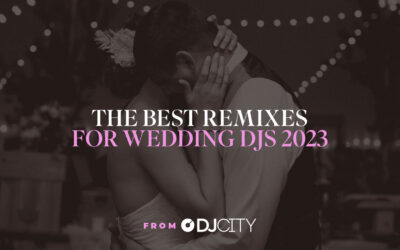
Wedding season has arrived! DJcity’s Remix Director Sir Marcus has put together a list of wedding-friendly tracks guaranteed to freshen up your DJ sets and...
-
December 22, 2023
Our Biggest Sale of the Year: Join DJcity for $1 🚨
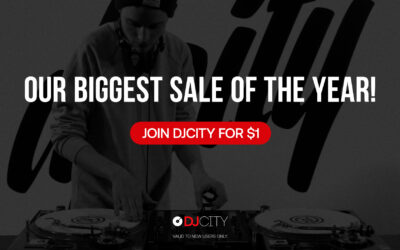
We just launched our biggest sale of the year! Get 90% off a DJcity membership and join for just $1 (regular price $10) for the first month when you check...
-
April 12, 2024
New and Notable Tracks: Apr. 12
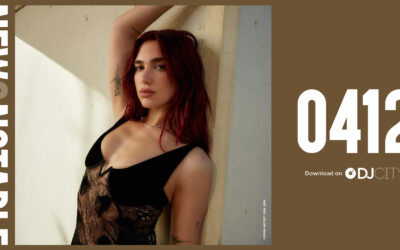
New tracks that DJs should know about.
-
February 15, 2022
New DJcity Pricing Plans Now Available
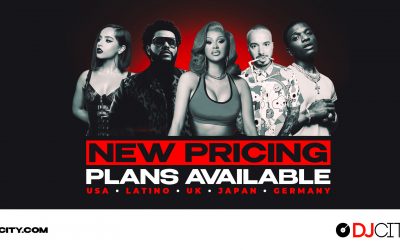
Here at DJcity, customer satisfaction is crucial, and therefore we always take input and feedback from our customers and DJ community very seriously. Due t...
-
December 18, 2023
Top 30 Remixes, Bootlegs, and DJ Edits of 2023
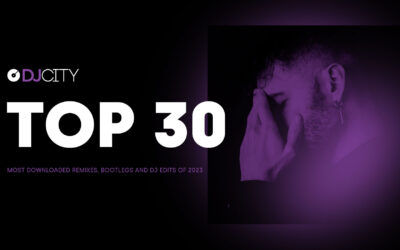
ATCG. Last Thursday, DJcity revealed its most downloaded tracks of 2023. Today, we dive deeper to uncover the most popular remixes, bootlegs, and edits of...
-
July 6, 2022
Afrobeats and Dance added as Main Genres on DJcity
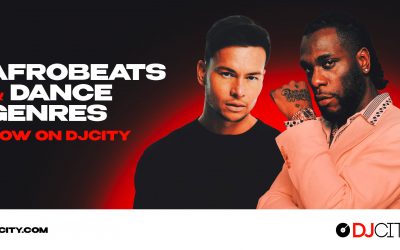
At DJcity, we are always working to make sure that the way our record pool functions reflects the needs of our users. Therefore in our latest update, we sw...
-
June 4, 2020
50 Cent’s ‘In Da Club’ Remixed by Mr. M!X: DJcity Exclusive
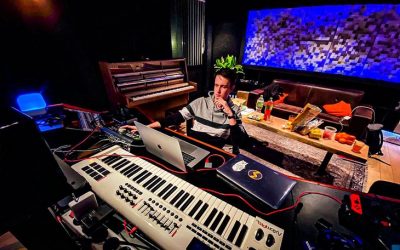
Mr. M!X. (Source:Instagram) Dutch DJ/producer MR. M!X has delivered a remix of 50 Cent's birthday anthem "In Da Club." The moombahton-inspired flip is avai...
-
June 29, 2015
Skrillex and Diplo Drop ‘Where Are U Now’ Video Feat. Justin Bieber
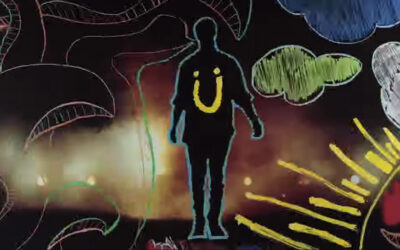
Some fans were skeptical when they discovered that Skrillex and Diplo's debut Jack U album includes a song with Justin Bieber. "Where Are U Now" has...
-
December 20, 2022
Top 30 Remixes, Bootlegs, and DJ Edits of 2022
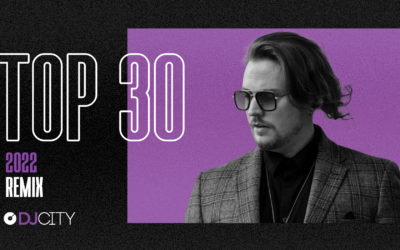
GRAYMATTER. Yesterday, DJcity revealed its most downloaded tracks of 2022. Today, we dive deeper to uncover the most popular remixes, bootlegs, and edits o...
-
March 24, 2020
Salt-N-Pepa’s ‘Push It’ Remixed by Safety First!: DJcity Exclusive
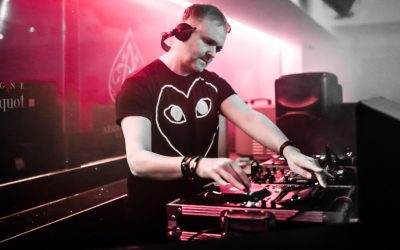
Safety First!. (Source: Safety First!) Veteran Manchester-based DJ/producer Safety First! has released a DJcity exclusive remix of Salt-N-Pepa‘s hip-hop cl...

